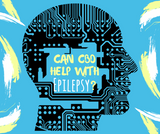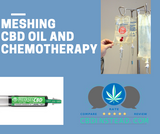Dementia is a difficult road that the entire family experiences. It can be hard to determine what is the best course of action when you don’t know what is coming next. Learning the stages of dementia can help you plan treatment and care for your loved one more effectively, making this road a bit less bumpy.
7 Stages of Dementia
There is a three-stage model of dementia which breaks it down to mild, moderate, and severe. But we like it when things are broken down even more because it gives you more accuracy with your treatment and care. Here are the seven stages of dementia and what to expect when you get there.
No Dementia
Stage 1: No Impairment
The first stage of dementia has no symptoms. In this stage, the individual has no cognitive or physical decline and functions normally. In the medical community, someone who hasn’t yet developed dementia can be considered stage 1.
Stage 2: Very Mild Cognitive Decline
The second stage of dementia can be a little sneaky considering losing your some of your memory can come with old age. Things like forgetting where you put your keys or small things like that are an indication of developing dementia as well as just being forgetful. It’s not likely that the family will even notice unless your loved one is known for an impeccable memory.
Stage 3: Mild Cognitive Decline
The third stage of dementia is when it becomes more noticeable to the family, the individual, and the physician. It will be harder to concentrate and forgetting things will be even more common. If they are working, you may notice a decline in their performance. In the third stage of dementia, your loved one may also have a hard time putting their words together.
Early-Stage Dementia

Stage 4: Moderate Cognitive Decline
In the fourth stage of dementia, your loved one may have a difficult time dealing with their finances, remembering events that happened recently, or have a difficult time traveling by themselves. Individuals with dementia can become in denial of their condition, wanting to take more control than they may be able to handle. At this point, a doctor can diagnose Alzheimer’s disease.
Mid-Stage Dementia
Stage 5: Moderately Severe Cognitive Decline
In the fifth stage of dementia, your loved one is going to need to start receiving help with daily activities like preparing food, getting dressed, or taking a bath. Certain important memories can slip like their address, phone number, or what day it is. Someone in the fifth stage of dementia may not be able to live alone anymore.
Stage 6: Severe Cognitive Decline
The sixth stage of dementia comes with some personality changes as well as worsened memory loss. They may forget family member’s names and may only remember very few recent events. They may also have a difficult time holding their bladder, and their speaking abilities can greatly decline. They may also suffer from delusions, anxiety, and compulsions at this stage.
Late-Stage Dementia
Stage 7: Very Severe Cognitive Decline – Final stage; communication is limited, physical systems also decline
In the seventh stage of dementia, your loved one may lose all ability to communicate. They may lose the ability to walk and need a lot of assistance with their everyday activities like bathing, eating, and getting dressed.

When to See a Doctor
Your loved one should be visiting the doctor regularly for check-ups as they age to be sure to catch any disease or disorder that tries to sneak in unnoticed. Unfortunately, many people don’t get attention for their dementia until it has started to take hold because the beginning stages are so hidden. There are ways you and your loved one can try to prevent or slow down the progression of dementia by changing your diet, exercising, and even taking supplements to help boost your brain power. One thing you should talk to your doctor about is taking CBD for dementia because studies show it may be able to help slow down the disease as well as relieve the individual of certain symptoms.














